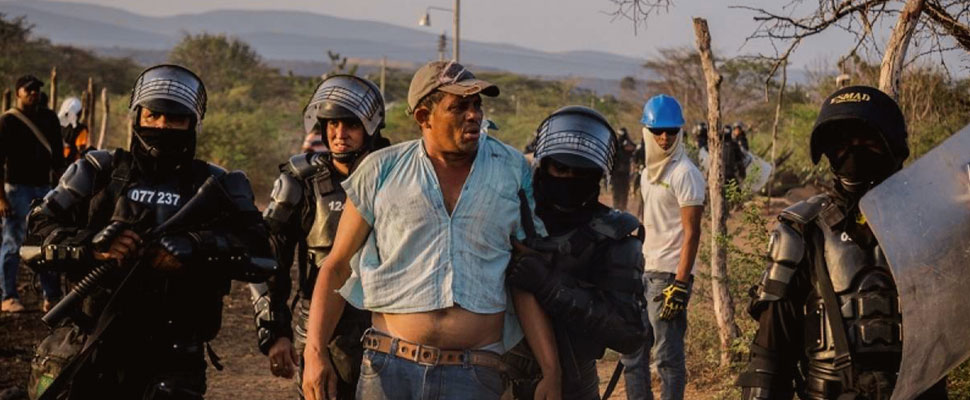To be an environmentalist in Latin America is synonymous of death?
58% of the homicides to environmentalists that occur in the world are registered in Latin American countries

In 2017, at least 197 environmentalists died in the world for defending natural reserves and lands from the hands of the government or private companies, which for their economic interests, transgress communities and ecosystems. Of these deaths, 116 occurred in Latin America, making it the most dangerous region on the planet when trying to protect the environment.
Leer en español: Ser ambientalista en América Latina: ¿Sinónimo de muerte?
Brazil, Colombia, and Mexico are the countries that lead the list with the highest number of deaths of this type in Latin America. According to a report published by Global Witness in February of this year, Brazil leads the regrettable position not only at a regional level, but also in the world. In this South American nation, an average of 40 people die each year to defend environmental causes.
Colombia and Mexico follow with 32 and 15 murders per year, respectively. Although in nations such as Peru, Guatemala, and Honduras the figures are smaller, environmental activists seem to sign a death sentence when they decide to defend rivers, nature reserves or sacred places from the hands of the most powerful.
A war between development and tradition
In 2016, Berta Cáceres, a well-known Honduran activist, was murdered after receiving several threats and reprisals for dedicating her life to defending the natural reserves of her country and preventing the construction of a hydroelectric plant in a place considered sacred for an indigenous population. However, Cáceres' ability to mobilize the communities and unite them to fight for their rights was no stronger than the power of the private companies that succeeded in silencing it.
Two years after the murder of Berta Cáceres, nine people have been arrested, but death threats continue and now Cáceres’ daughters are victims of these threats for taking the flags in her mother's struggle.
Contrary to Honduras, in other Latin American countries, the death of environmental activists remains, like many others, in impunity.
According to figures from the Ombudsman's Office, 282 social leaders have been murdered in Colombia since 2016 and until this year. In this list are the lives of two men who faced the construction of Hidroituango, a hydroelectric polemic that becomes the largest and most ambitious project in Colombia, which has been under construction for eight years and has left dozens of houses (including three schools) destroyed, hundreds of evacuees, a threat of latent disaster, and two mysterious deaths for opposing the project that have not yet been clarified.
Also read: Extrajudicial executions: the practice strengthens in Latin America
The causes behind the homicides
According to the report published by Global Witness, the main causes behind these homicides are agribusiness, mining, poaching, and logging. The demand for basic products, such as soybeans and palm oil, motivates companies to expand crops even if this means increasing deforestation, generating land traffic, or disadvantaging people who had protected the area for decades.
The industrial powers or government of a nation find it easy to silence the environmentalists, mostly peasant or indigenous leaders who try to protect the lands that were granted to them and which represent their only livelihood. However, journalists and academics are also targets of threats and intimidation that seek to 'soften' the road to "development".
In the last three years, global figures of murders of environmental activists have remained almost static, oscillating in a few numbers without major changes towards an encouraging scenario. However, Mexico has climbed unfortunately from position 14 to number four, of the countries in the world with the highest rate of this type of homicide.
As indicated in the aforementioned report, these statistics show that "people who dare to speak up will continue to be violated, imprisoned and murdered until companies, investors and governments really include communities in decisions about the use of their lands and natural resources".
Latin American Post | Krishna Jaramillo
Translated from “Ser ambientalista en América Latina: ¿Sinónimo de muerte?”





